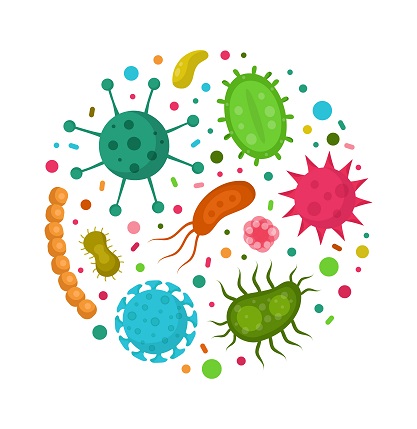Antibiotics and antibodies are substances that can eradicate the bacteria in the body.
They are quite similar in that they are meant to prevent and kill an infection.
But there are many differences between the two.
Antibiotics and Antibody differences
| Feature | Antibiotic | Antibody |
|---|---|---|
| Source | Antibiotics are produced from fungi or other microbes, while some are chemically synthesized. Those from micro-organisms are manufactured on a large scale for healthcare using rDNA technology and fermentation. | Antibodies are produced inside the living body by the B-lymphocytes in response to an infection or foreign invasion. |
| Chemistry | Chemical structure varies accordingly and is specific for each class. | These are proteins in nature. |
| Types | There are following types like 1. Beta-lactams (penicillin, cephalosporins) 2. Aminoglycosides (streptomycin) 3. Chloramphenicol. 4. Tetracyclines (Doxycyclin) 5. Qunionlones (cefixime) 6. Sulfonamides. 7. Anti-TB and leprosy | There are 5 major types like 1. Immunoglobin G (IgG) 2. Immunoglobin A (IgA) 3. Immunoglobin M (IgM) 4. Immunoglobin E (IgE) 5. Immunoglobin D (IgD) Of these, IgA is highly active against bacteria. |
| Specific against | They are meant to target only the bacteria. | They can target any foreign cell-like bacteria, protozoa, fungi, viruses, and even cancer cells. |
| Mechanism | Antibiotics target specific bacterial structures like the cell wall, protein synthesis ribosomes, DNA gyrase enzymes that help in DNA replication, and other enzymes. | Antibodies recognize the foreign cell and bind to it, forming a complex and neutralizing it by phagocytosis. |
| Mode of action | The action is seen until their half-life (t1/2) in the body. And mostly it is not more than a few hours. | They kill and destroy bacterial cells. |
| Dependency | Antibiotics are dependent on the cell cycle phases of the bacteria. | Antibodies are dependent on the epitome or antigenic portions of the bacteria for action. |
| Effectiveness | They are highly effective against bacteria | They are highly effective except in immunocompromised patients. |
| Speed of action | I believe antibiotics take a longer time comparatively | Lesser time. |
| Duration of action | They act for a few hours. | The action and effect are constant, i.e., the protection is always present unless the immunity is less. |
| Resistance | Bacteria have developed resistance to many antibiotics. | There is no resistance to antibodies in a healthy individual. |
| Interdependency | Though antibiotics are effective, antibodies are still essential for the control of infections. | If immunity is good, antibodies can destroy bacteria without the need for antibiotics. |
| Adverse effects | Antibiotics can cause adverse effects and are sometimes so severe that they lead to death. (Ex: Penicillin produces anaphylactic shock and death in a few with an allergy to it.) | Antibodies are natural body substances and do not cause adverse effects except in patients with autoimmune disorders. |

Similarities and comparisons between antibiotics and antibodies.
| Feature | Antibiotics | Antidotes |
|---|---|---|
| Pharmacological Effects | It aims to stop bacterial infection | Stop bacterial infection. |
| Dose | Antibiotics are to be given a minimal therapeutic dose for effective action. If not, the infection will not be controlled and can worsen due to resistance. | The antibodies are not dose-specific. However, sufficient antibodies are essential for protection and removal. This is possible only in a healthy body. |
| Large scale production | They can be produced on a large scale to meet the market demand. | Monoclonal antibodies can be produced on a large scale as per needs. |
Do antibiotics produce antibodies?
Antibiotics do not produce antibodies.